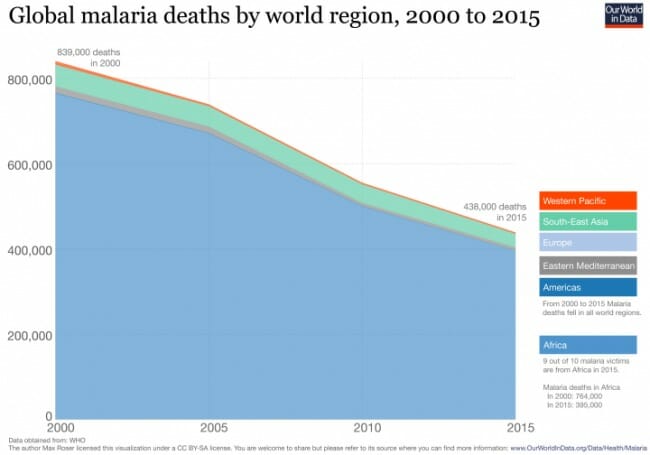On the List of Good News Under-Reported By the Media, This is Near The Top of the List
This is really staggeringly good news. Malaria has, through history, been one of the deadliest infectious diseases (though of late my understanding is that it has been surpassed by HIV). One of the problems with malaria is that for every death, many more are rendered unable to work for long periods of time, a drag on productivity in economies that already have trouble producing sufficient food and other goods.

I saw this on wattsupwiththat - with the comment that Michael Mann apparently took 1.8 million dollars to tell us Global Warming would cause malaria to increase. Another failed AGW prediction.
One reason, other than their usual pathological resistance to reporting good news: part of the credit goes to Bush's Malaria Initiative. They spent so much time making him out to be a monster, rather than just a bad President, that it's hard to acknowledge that he did a good thing.
That is awesome -- I hadn't known the decline was that dramatic.
"many more are rendered unable to work for long periods of time"
I wonder which does that more, malaria or socialized medicine like in Canada
Here's a guy who makes the point of leaving people laying in ICU waiting for weeks for a test (dye test) done in the US within an hour of a heart attack.
https://www.youtube.com/watch?v=HNPSxSGeass&t=1123s
Just imagine how low it would be if we hadn't denied DDT to places like Africa.
Is that when they started to use DDT again to save Humans instead of banning it to save (allegedly) birds of prey?
The Stockholm Convention on Persistent Organic Pollutants banned DDT for agriculture, but not for vector control. One problem was that widespread agricultural use of DDT led to the evolution of DDT-resistant vectors. Use of DDT is still restricted.